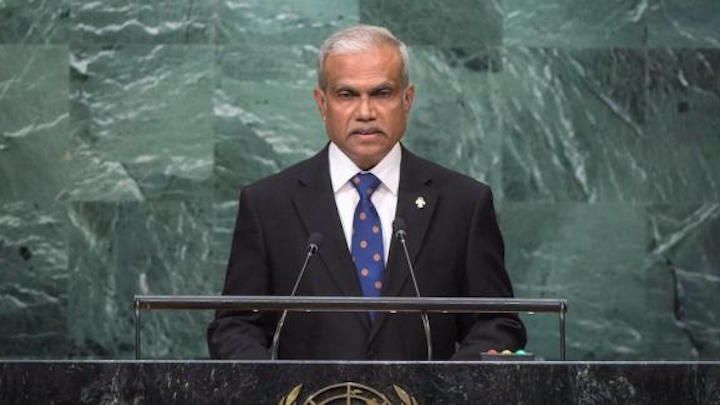Maldives seeks election to UN Security Council
Citing under-representation of small states in the UN’s main bodies, Foreign Minister Dr Mohamed Asim announced Saturday the Maldives’ candidature to the UN Security Council for the term 2019-2020.

25 Sep 2016, 09:00
Citing under-representation of small states in the UN’s main bodies, Foreign Minister Dr Mohamed Asim announced Saturday the Maldives’ candidacy to the UN Security Council for the term 2019-2020.
In his statement at the UN General Assembly in New York, Asim said small states are under-represented because of its small delegations and limited capacities.
“[But] every member of this organisation must have the opportunity to serve, must have an equal chance to be part of everybody, especially the Security Council, to make the decisions that affect us all,” he said.
“We do not believe that might or size determines destiny; our ability, our motivation, our will to work, and our ideas do.”
Become a member
Get full access to our archive and personalise your experience.
Already a member?
Discussion
No comments yet. Be the first to share your thoughts!
No comments yet. Be the first to join the conversation!
Join the Conversation
Sign in to share your thoughts under an alias and take part in the discussion. Independent journalism thrives on open, respectful debate — your voice matters.




